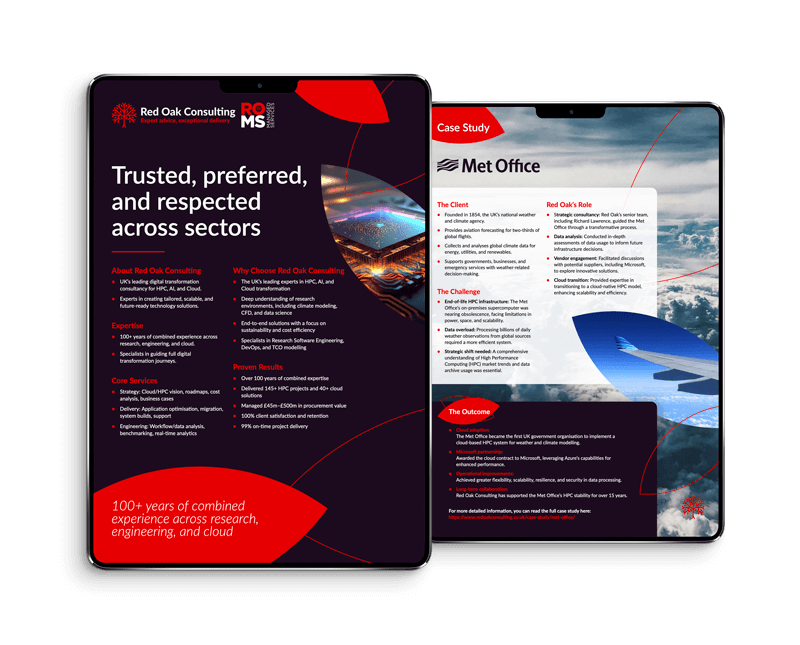HPC, or High Performance Computing, is, somewhat reassuringly, exactly what it sounds like.
Computers are, at their core, machines that we use to solve problems. They can range in size and simplicity from that of a pocket calculator, to a smartphone, to a desktop, all the way up to behemoths that take up entire warehouses, running millions of millions of calculations each second.
On the scale of pocket calculator to warehouse, High Performance Computing lies somewhere on the upper end of that scale.
This is because HPC is all about solving problems that are big, and difficult – problems which a desktop or laptop would struggle to handle in a reasonable timeframe. High performance computers are capable of processing data much, much faster than even the most high-spec desktop units, meaning that the scale of the simulations they are able to run is much greater, too.
So, how do they work? What makes High Performance Computing “high performance” is the use of many CPUs all connected in parallel, all working and communicating with each other to solve lots of different parts of the same problem at once. It’s the computing equivalent of “many hands make light work”. Systems like this are highly-engineered and often require specialist software to make them run properly, but they provide a level of stability and reliability that most consumer computers simply cannot match.
That said, even within the umbrella term HPC, there is a lot of variety in what you can expect from a high performance computer – in capability, in size, and in cost. Most of what you might hear about HPC lies at the top end of the market – the warehouse-sized computers that cost upwards of £50 million and crunch numbers extremely fast. Yet, most people don’t need a Top 100 Supercomputer to solve their problem, and couldn’t afford it even if they did.
It’s somewhat relieving then, to find out that that’s not the limit of what HPC can be. HPC solutions tend to be tailor-made to the problem they’re targeting, and can cost as little as £50,000. The key to benefiting from HPC is finding the right solution for the problem at hand.
And that problem could be anything. HPC has something of a reputation for its use in the academic and business sectors, but its reach is far more widespread than that. It’s not just used to calculate planet dynamics and discover drugs – it’s used to give the best lighting effect in the latest animated film, or to figure out the secret to the perfect cricket bowl. In today’s world, almost every walk of life is touched by HPC in some small way.
In the end, HPC is just a specialist solution to a difficult problem, and the person that decides what that problem is, and if it needs solving – is you.
Mari Thomas


